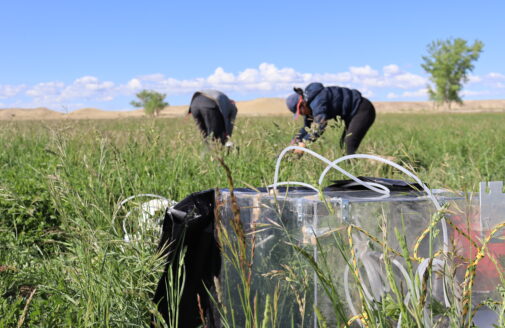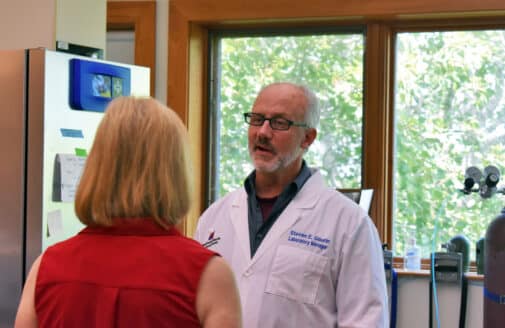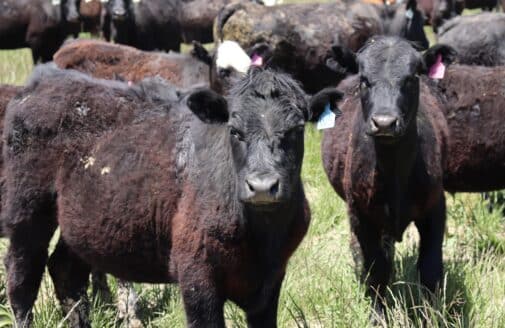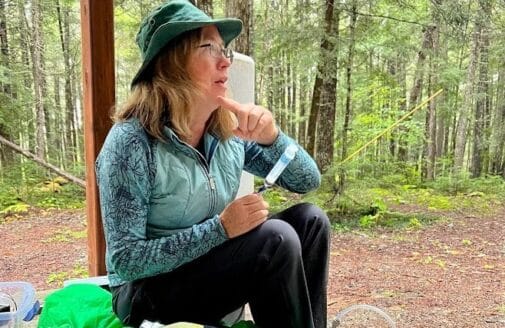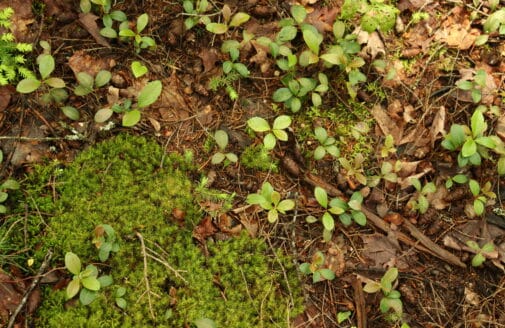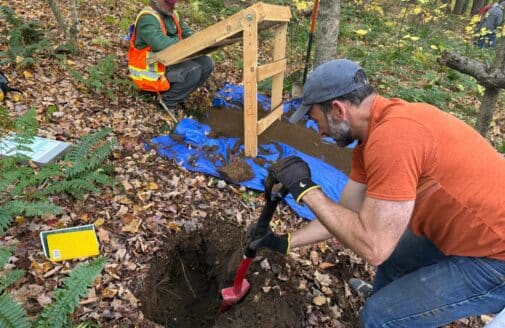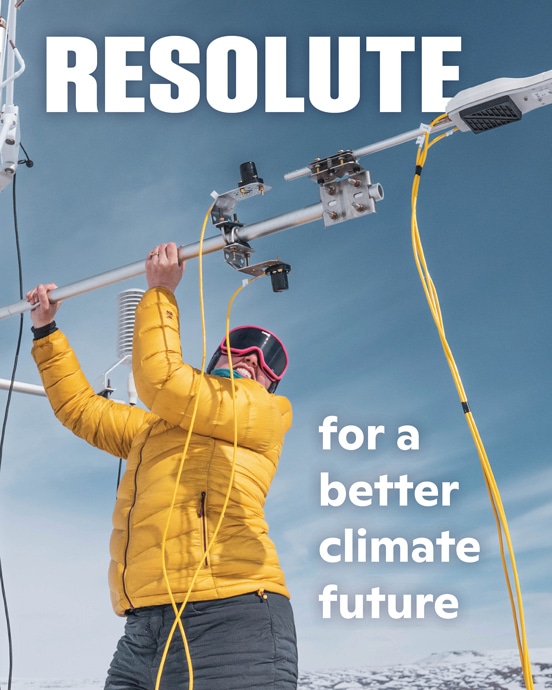Life in the lab is a lesson in trial and error
For Research Assistant Marly Bartkus, lab work can be both tedious and chaotic, but they wouldn’t have it any other way
Prep for sample analysis in the Woodwell lab
photo by Dee Sullivan/ MinFin Photography
My first attempt at using Woodwell’s new Total Organic Carbon (TOC) analyzer began with a week of performing potassium chloride (KCl) nutrient extractions on 120 soil samples , and abruptly ended when the analyzer immediately failed to accurately measure total nitrogen correctly. While this disruption was frustrating, experiencing setbacks is a common part of lab work.
Woodwell Climate Research Center has four labs used by researchers to prepare and analyze soil, plant, gas, and water samples. In the preparation labs, scientists spend hours filtering, treating, extracting, and grinding samples, usually hundreds at a time. My job involves doing biogeochemical analyses on soils and water to understand how nutrients and greenhouse gasses are affected by different land management practices. The projects that I have worked on include studying the role of cover crops on soil health, exploring the impacts of tropical agriculture on reservoir dynamics, and the impacts burning of arctic tundra on nutrient availability. As a result, I have become extremely familiar with the breadth of complex assays that Woodwell Climate’s labs offer.
Performing these tasks can feel tedious, and facing boxes upon boxes of samples can be daunting. But when I put on some R&B and dig in deep, I’m able to transform the work into more of a meditation. Suddenly the rhythm of the music aligns with my pipetting, or how I change out samples while weighing, or my pace when cleaning and preparing materials for the next batch of samples. Recently, I spent an entire week grinding 500 soils for Woodwell Climate Carbon Program Director, Dr. Jon Sanderman’s Rangeland project. In the beginning, it was a little awkward finding the best approach to the grinding/cleaning dichotomy, which involves filling capsules with dirt, loading them onto a shaking instrument for grinding, storing the ground samples, then spending a decent amount of time cleaning up for the next set. With time, though, I caught a groove and the work became almost muscle memory.
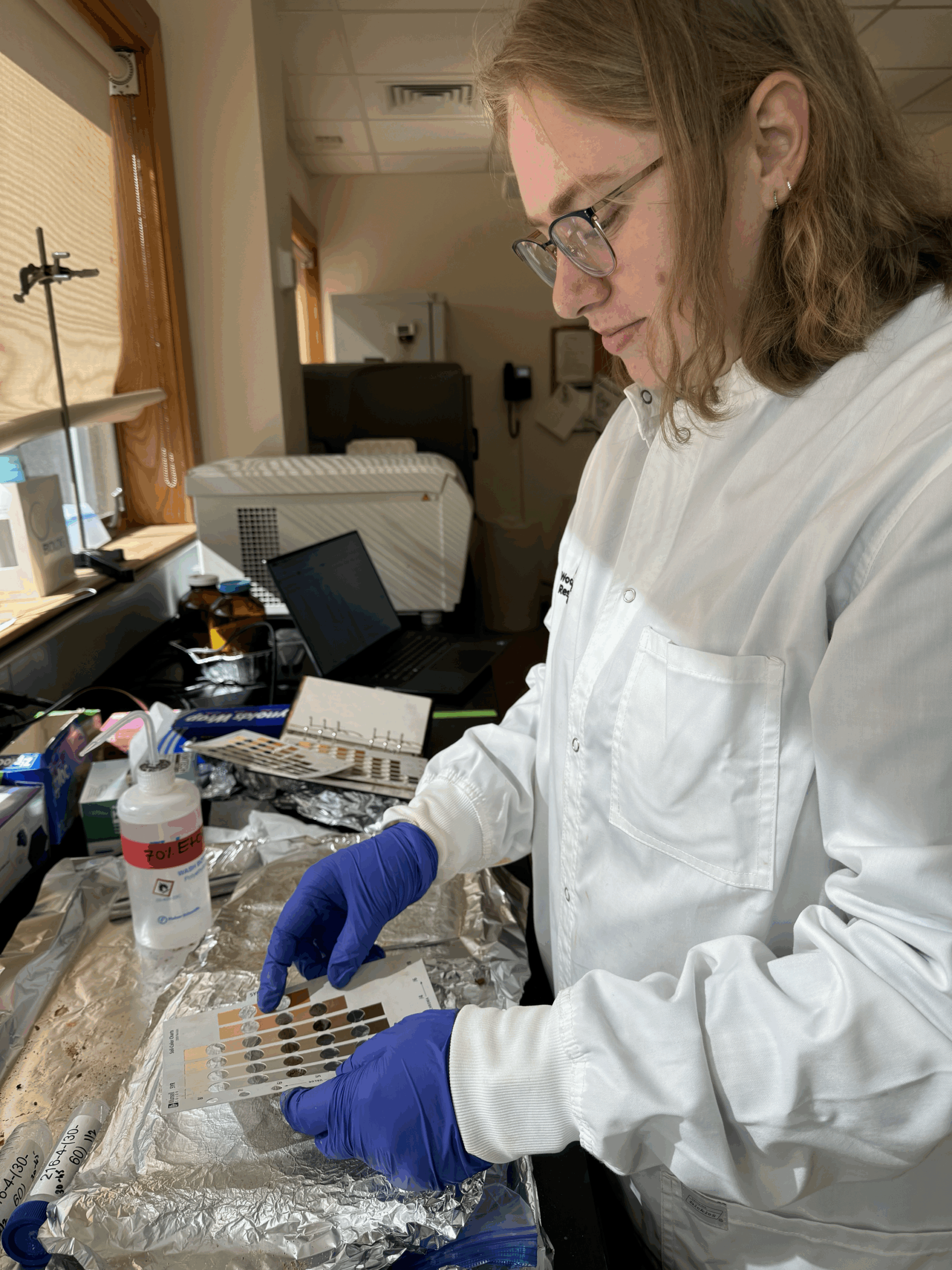
Marly Bartkus analyzes soil samples.
photo by Taniya Roy Chowdhury
Once the preparation steps are complete, the samples are ready for analysis on our sophisticated instruments, which measure greenhouse gasses, nutrients, carbon and nitrogen levels, and other soil and water qualities. Analysis might seem like the more complex aspect of our work, but between automation and well-developed methods, data collection can be as simple as loading samples into the apparatus and pressing start.
However, sometimes the instruments misbehave, and that’s where my biggest challenges begin. Troubleshooting is a very open ended process, so knowing where to start requires experience and in-depth understanding of the instrument. The answer to a problem can come from the manual, other lab users, or tech support, and often encountering an unfamiliar error can be the best way to learn the intricacies of equipment, and ultimately new skills. Since joining this lab, I have learned a good deal about electronics by having to check the performance of, and occasionally replace, components such as fusion boards, distribution boxes, and fuses. Similarly, software engineering has become less elusive to me. Familiarity with these and similar aspects of our instruments allows lab members the ability to restore harmony when they begin to misbehave.
Despite the challenges, lab work is really fulfilling. Watching the seemingly endless queue of samples dwindle down to nothing is gratifying, and the data produced can provide long-anticipated answers to some of our biggest research questions. Trial and error is a tried and true way to learn, so needless to say, a lot of learning occurs in the lab. Lab results are rewarding by nature, because they drive the important work done at Woodwell Climate, but after an uphill battle, they become much more gratifying. Struggling with an instrument only increases my appreciation for smooth sailing and working through so many samples reminds me of the thorough research that all our scientists are doing every day. My work may seem aggravating at points, but it is very much worthwhile for the greater mission of mitigating climate change.




